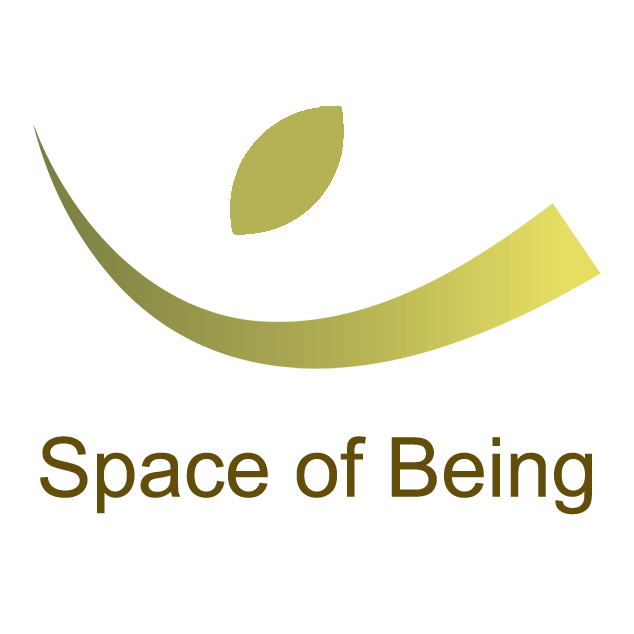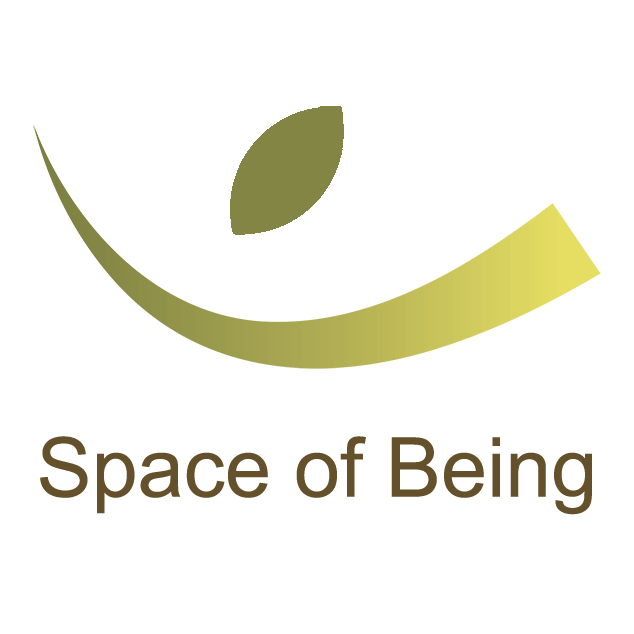Are you a Self-Improver or a Self-Enquirer or perhaps both???
Do you remember what first drew you to a Yoga class, whether in person or online?
Many different things, I imagine.
It seems that mostly, we find ourselves in a class for the first time, because we’re looking for an improvement in our lives. And sure enough, we quickly notice positive changes - possibly even after the first class. We feel more at ease in our bodies - maybe stronger, more supple, more alive. Or perhaps we sleep better. And then after a few more classes, we might notice that we worry less and some of our relationships with people at home and at work have become smoother.
Do you recognise any of this for yourself?
We could say that all the above positive changes - and more - help to make us better versions of ourselves. And there’s nothing wrong with that is there?
In many ways, there’s no problem at all with wanting to feel or to be better – we all want this. But over time, what Yoga comes to mean in our daily lives can change – and I’m talking about changes that can happen from one minute to the next and/or over decades. New experiences and unexpected reflections can begin to creep in and can be quite difficult to describe.
Have you noticed, perhaps, that you sometimes find yourself more curious about the nature of existence? Do you find yourself more likely to marvel at all the wonder in the world at the same time at becoming more sensitive to the horrific parts?
No problem at all if not. But, in terms of how and what I teach, it feels important to me that, possibly, by solely focussing on the Self-Improvement dimensions of Yoga, you and I could be short changed of a fuller meaning and experience of Yoga in our lives. This is something I hear often as a helpful reminder of a bigger life – including from my beloved teachers at Mandala Yoga Ashram.
I feel increasingly passionate about the fuller dimensions of Yoga and know how difficult it is to do justice to these in a weekly class. I also realise that a deeper dive into what might lie beyond Self-Improvement – what do I mean by Self-Enquiry, for example? - isn’t for everyone – or at least not for now. I think I practiced the sequence of Asana (physical postures) my grandmother gave me when I was 15, for over 20 years, before I showed the slightest interest in finding out more of what Yoga had to offer. And in no way am I suggesting that it’s not enough to come to a weekly class to rest, to move, to take time out from all of life’s demands, without any desire to reflect more deeply. Please don’t worry, my weekly classes are not about to become philosophy sessions 😉
But if any of this resonates with you, you might like to try out more than a weekly class - everything else I teach provides a fuller context to explore Yoga in its biggest sense - whether this is through the online classes and workshops Yoga in the Midst of Life (YIML), or the meditation/relaxation course iRest Yoga Nidra, or the BWY Yoga Foundation Course - details on all of these are on this website
~~~
“Yoga is not a self-improvement project. It´s not about becoming a better version of yourself. It is about uncovering what is already there, that has already been there all the time. It is about befriending yourself- which is not an easy thing to do. Because we have been brought up in a very competitive way, and for many of us love has been conditioned in a way that we can only receive it if we deliver something in return. We all have so many conditions that are present at a very subtle level.”
Annette Arndt – Kripalu Centre
“As long as our orientation is toward perfection or success, we will never learn about unconditional friendship with ourselves, nor will we find compassion”
Pema Chödrön
~~~
The words of Annette Arndt and Pema Chödrön above hint at what can happen when we let go of working hard to improve ourselves – and in the rest of this post, I touch lightly on some of the differences between Self-Improvement and a different but related project of Self-Enquiry.
~~~
Some Yogis and Philosophers, including the likes of Carlos Pomeda and Jedhu Krishnamurti, reflect on certain differences between SELF-IMPROVEMENT and SELF-ENQUIRY, illustrated in the blog icon. Self-Improvement, on the horizontal axis, focusses on DOING more to become better (how most of us first come to our yoga mats), while Self-Enquiry, on the vertical axis, focusses on existential questions about the limits and the expanse of who we think we are – and what is this life anyway?
The Self-Enquiry axis is one of BEING as an end in itself. [2] What might BEING mean in this context and how might it relate to different parts of ourselves? A central realisation of many contemplative traditions, is that our suffering occurs because we constantly get in the way of our true selves – we allow our repetitive, often negative thinking, our obsessions, our conditioning, to veil our potential to experience life more fully, or in a less contracted way. A metaphor often used is one of the infinite expanse of a clear sky which can be interrupted by passing clouds, weather formations, satellites and aircraft. When these interruptions (our moods, our sensations, our personalities) are absent, the sky remains. We don’t need to do anything – we are already here – we just need to realise that the clouds, the aircraft, are not the sky. Of course, this doesn’t mean we lie around doing nothing (an old friend of mine’s response to his understanding of Zen Buddhism 😉) but there’s not space here to go into the intricacies of this paradox.......
Asking and living with existential questions is hard, perplexing and sometimes unsettling – of course! I was in a workshop recently when I posed the question; ‘How often have you wondered, during your life, who this Self is that we think we want to improve?’ And I was met with such a variety of responses. One person replied with ‘Every single day’ and other people were very confused by the question – and maybe even resented being asked to reflect about such ‘deep’ things. Most of us don’t come to Yoga thinking we may be asked who do we think we really are! Or maybe you’ve always asked these questions, whether Yoga has been part of your life or not – Yoga doesn’t have a monopoly on the nature of existence!
This route of exploration into the nature of the Self is now what I love most – it asks of us that we explore where this Self is located? What are its limits? Are we only our bodies, our thoughts, our emotions – is our personality, our inherited conditioning the extent of who we are? And if there’s more to us, then what is this ‘more’ made up of?
So, how might we feel into a fuller sense of ourselves in a class, a workshop, a retreat – or when out walking or sitting on the sofa with a cup of tea?
Have you ever wondered, for example, what this spacious feeling might be that we can experience at any moment, but let’s say during or after a Yoga class and that may stay with us for hours or days? Why are we suddenly more curious about what happens when we die? Why do we start wondering whether the limits of our bodies are the limits of ourselves? Or where our thoughts come from? Or ultimately, Who are we beyond our bodies, our thoughts, our personalities?
Yoga has so much more to offer in terms of accompanying us into self-enquiry – or what Georg Feurstein calls being a Psychonaut (rather than a Cosmonaut). Personally, I love the idea of being a psychonaut and the travels and adventures can be as fascinating and surprising as flying across the world to live within an entirely different culture like I used to do so much of. This kind of psychonautic exploration feels like an urgent need to me – maybe always, but now especially, at a time when what we witness on the planet makes less and less sense.
Philosophers of different traditions, have, for millennia, of course explored the questions of existence – what is life? Who am I? Personally, what I love about Hatha Yoga is that the Asana (physical poses), Pranayama (breathing), Meditation and Relaxation elements of a practice, all offer EMBODIED ways of approaching these huge questions. Psychonautic exploration becomes more tangible. The answers to big questions may be elusive or downright unattainable – but sometimes, as a sudden, unexpected, fragrant part of our Yoga practice, we sense a hint of a greater life - of something that lies beyond our teeming minds, our aching and glorious bodies, our complex personalities – maybe a wellspring of peace, of spaciousness, of simply BEING.
And I’ll leave you below with a few quotations and poems that say what I’m trying to explore above with so much more clarity and simplicity!
Happy Christmas and Happy New Year!
With love Rebecca XX
~~~
“Stillness is vital to the world of the soul. If as you age you become more still, you will discover that stillness can be a great companion. The fragments of your life will have time to unify, and the places where your soul-shelter is wounded or broken will have time to knit and heal. You will be able to return to yourself. In this stillness, you will engage your soul. Many people miss out on themselves completely as they journey through life. They know others, they know places, they know skills, they know their work, but tragically, they do not know themselves at all. Aging can be a lovely time of ripening when you actually meet yourself, indeed maybe for the first time. There are beautiful lines from T. S. Eliot that say:
'And the end of all our exploring
Will be to arrive where we started
And know the place for the first time.'
JOHN O'DONOHUE - Excerpt from the book, Anam Cara
~~~
"If you give complete attention, with your body, with your nerves, with your eyes, with your ears, with your mind, with your whole being, there is no centre from which you are attending, there is only attention. That attention is complete silence"
This Light In Oneself– J. Krishnamurti
***
“When we open to the terrifying truth that we can't control life, we open to life's incredible, fragile beauty.”
Anne Cushman
[1] With thanks to a cohort from Yoga in the Midst of Life, March 2023 who worked with me on an exploration of the theme explored here and helped me understand more about how Yoga meets each one of us where we’re at, at any given time.
[2] Ekhart Tolle in The Power of Now, also makes this distinction between DOING and BEING

